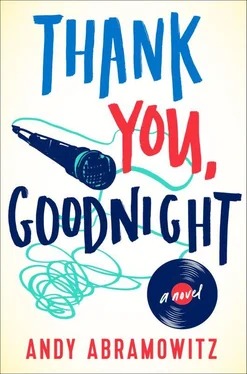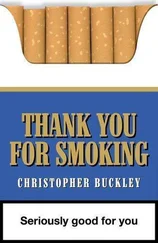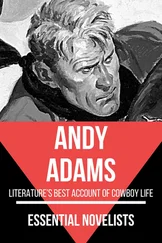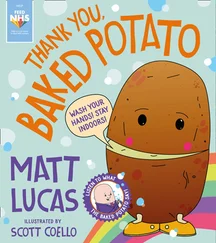But as the days came and went, the leviathan eventually loosened its grip around my neck. I tried to rekindle the optimism on display at the Plum and assured myself that if there was something I truly needed to know about this record, I’d know it. Sonny was a lot of things, but shy he was not. Maybe this thing seemed hotly crucial to him at the time, but its importance eroded as the days wore on. The curiosity still hounded me, but the notion that Sonny held some perilous piece of news that was going to derail my life gradually dissipated. Evolution, man, evolution.
The train’s four cars were dense with passengers on the midday climb up the Northeast Corridor. I was on my way to New York to convene with the band at Alaina’s office on a number of agenda items. Warren boarded in Trenton and met me in my car. In a striped brown sweater—something Charlie Brown might wear if he ever moved to SoHo—he took the seat across from me and tapped a manila folder on his slacks.
“You like any of these?” he asked, frowning.
I opened up my own folder of cover art mock-ups that had trickled down from Colin to Alaina and finally to the lowly band members, whose opinions counted the least. As I sat there on the train and tried to like them better, Warren seemed to grow increasingly disturbed by them, leafing spiritlessly through the dozen or so glossy printouts and muttering, “I mean, you know . . . right?”
“So, tell her,” I said. “It’s your band too.”
Warren’s cultured sensibilities as a teacher of art were clearly offended. “Look at this homage to Thomas Kinkade.” He held up an oil painting of some Middle Earth meadow with a stone cottage under a tree, windows glowing as dusk settled over a sweet little hamlet. “Fairport Convention must have a new album coming out and we got sent their pile by mistake. Is this what they think of us?”
I sniffed and shrugged.
“And this monstrosity,” he said, holding up his next exhibit and trailing off in disaffection. This one was an eighties postcard of the Sunset Strip. On it, a sin-red Pontiac cruised down a palm tree–lined avenue with a neon sign blinking out the words Electric Eel . “This kind of thing concerns me.”
He bitched a little about another one, a Hokusai-style illustration, then went looking for the café car.
I’d made a play for using the very painting that had inspired the title. The label negged it and instead sent us out on a photo shoot in a sketchy Philadelphia neighborhood. After a thousand clicks in front of cobblestone alleys, bodegas, walls of mad graffiti, gushing fire hydrants, and urban corners that no doubt did double-duty as a crime scene most nights, the photographer hadn’t eked out a single snap that didn’t highlight our sunken eyes or sagging chins. We radiated the bad kind of mileage (softness, years of comfortable living), not the acceptable, Stonesy kind (heroin, relapse). The only halfway decent shot featured all four of us leaning with relaxed camaraderie against a wooden table in an abandoned row house where we were lucky not to have been capped. Careful inspection of that picture, however, revealed Jumbo’s fly to be open. Of course Photoshop could excise all human imperfections and wardrobe malfunctions, but the question had already been begged: Did we really need to be on the album cover? How was that going to help?
Warren returned and slid back into his seat with an energy bar and a Coke. Adjusting himself on the dead springs of his seat cushion, he let the soda fizz to life and resumed complaining. “These suck. I don’t know why you’re not more pissed off. After all our hard work, we’re going to have an album cover that looks like a poster for an English folk festival or an ad for Footloose Two .”
“They suck, Square. I agree. What do you want from me? We go in there and tell them.”
I wanted groovy, arresting artwork as bad as anybody. I just didn’t think I was a barometer for what groovy or arresting looked like anymore. And besides, the age of downloading seemed to have pretty much nullified album art. Gone were the days when some breathless kid peeled open a crisp new album or CD and soaked up the photos and liner notes during his virgin voyage through the songs. The cover design now appeared on your MP3 display at one square centimeter. Maybe you squinted at it for fifteen seconds in an elevator, but we probably didn’t have to worry about how it would look hung up on a dorm room next to a tapestry.
After a while, Warren set the folder aside and gazed pensively out the window. “I was at school yesterday. Stopped in to see some people.”
I didn’t say anything.
“Feels weird, man. School’s in session and I’m not there. You know, I always figured I’d be there when Patrick was old enough to attend. I’d embarrass the shit out of him in the hall, force him to play drums in the school band so he’d work up some strong resentment toward me—you know, all the good stuff.”
I didn’t share the ride to wax wistful about my abandoned profession. Law firms had no memory. If you left, you were a nonhacker, disdained by those who stayed behind. Someone else moved into your office and started tagging along at lunch and filling out NCAA tournament brackets in March. Soon all remembrances were wiped away. A year later, you were referred to as, Oh yeah, I remember that guy.
Warren bit absently from his glorified chocolate bar and rocked in his seat, the wheels beneath us rumbling northward.
“So, you miss it,” I summarized with mild annoyance. “Is that what you’re trying to tell me?”
“I’m not trying to tell you anything.”
“You’re always trying to tell me something. Everybody’s always trying to tell me something.”
He gave serious contemplation to the world beyond the window. Some forgotten factory breezed past. “You can be a cold person, you know that?”
“Can I?”
“I’m just not like you,” he said, chewing thoughtfully. “I have room in my life for more than one thing at a time.”
* * *
The moment we stepped off the elevator, I sensed something was wrong. Cataclysmically wrong. The receptionist greeted us with meticulously orchestrated naturalness. He couldn’t tell if we’d already heard.
Down the hushed corridor, we filed past Alaina’s office and saw her hovering over her desk with her phone against her ear, her expression grim. Warren and I shot each other nervous glances. Something felt gravely off. We continued down the hall toward the conference room, both of us breathing audibly, taking in the strange disquiet.
When I pushed the conference room door open, the first person I saw was Jumbo. He was seated on the far side of the long table, his head buried in his arms like a sleeping student. The only other person in the room was Marin, surely the longest-tenured personal assistant in the history of Alaina’s career, sloped against a credenza on the far wall. Jumbo raised his head as Warren and I entered. His eyes were puffy and red. I lost my breath.
“I can’t believe it,” Jumbo whimpered. He stood and circled the table, blanketing me in a hug.
“What the hell’s going on?” I said. Warren stood petrified.
“I don’t deal well with death, Mingus,” Jumbo sobbed into my shoulder.
I felt a sickening rush in my chest as I noticed Mackenzie wasn’t in the room. A wave of nausea surged up from my stomach and I could taste the puke in the back of my throat.
“What is he talking about?” I demanded of Marin.
“You haven’t heard.”
Alaina was now standing in the doorway. I disentangled myself from Jumbo but was almost too frightened to speak. “Haven’t heard what? Alaina—what the fuck is going on?”
“You guys live in caves?”
Читать дальше












